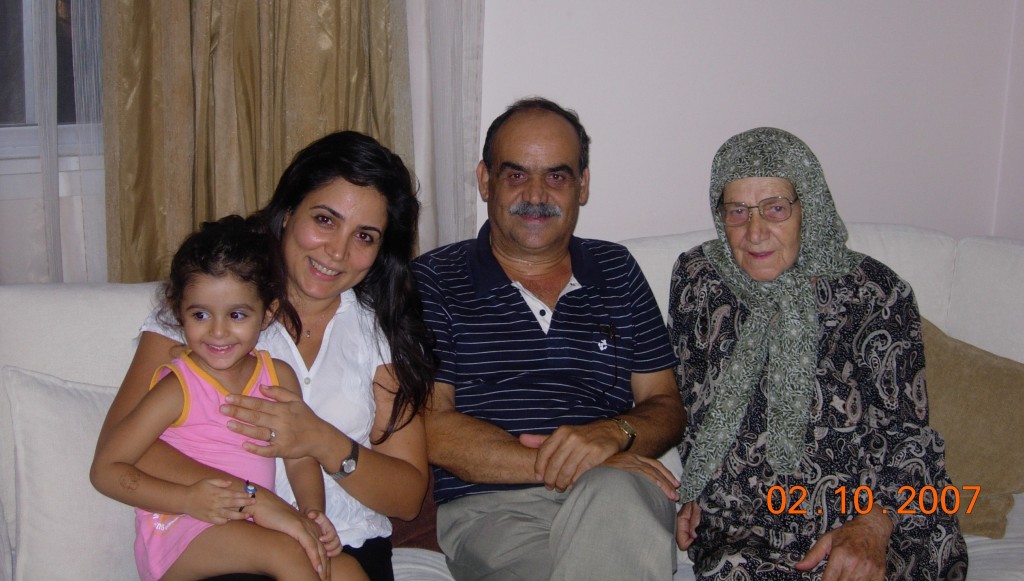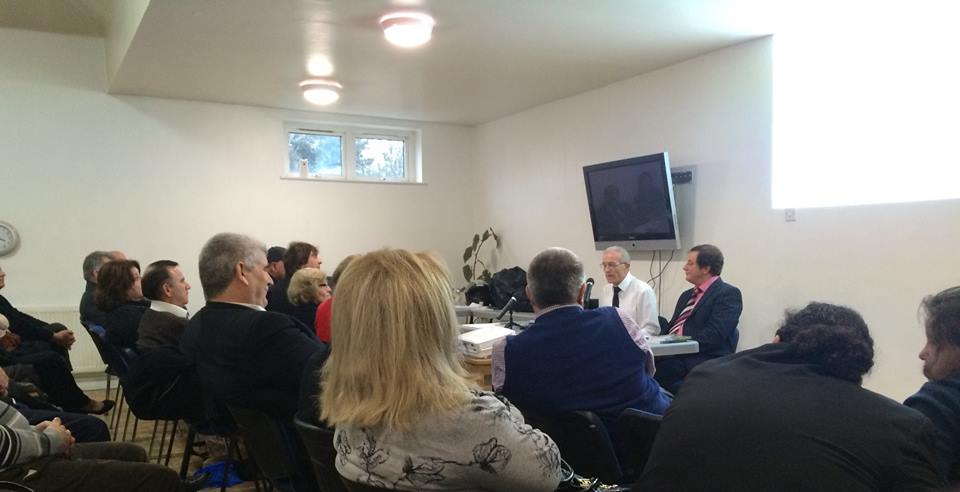A Turkish Cypriot property seminar held in London has called on TRNC President Akıncı to adopt the “global exchange” solution to overcome problems posed by conflicting Greek and Turkish land claims in Cyprus.
Owners say they are afraid their rights are being sacrificed to obtain a quick solution. Many are calling on the TRNC government to consult landowners about their claims on a systematic basis, both in the UK and in the TRNC – something which has not yet been done.

The calls follow claims by UN Special Adviser Espen Barth Eide that the Cyprus property issue is “90% solved”, while Turkish Cypriot spokesmen point out stubborn difficulties. The Cypriot press have also reported that individual property claims from refugees is favoured by the two leaders ahead of a global property exchange.
Campaigning groups Embargoed! and Vroisha (Yağmuralan) Association (VYA) held the property seminar at the Turkish Cypriot Community Association (TCCA) building on 24th Jan., using the experiences of VYA Chairperson Esat Mustafa as a starting point. Mustafa went as far as lodging his case at the European Court of Human Rights (ECHR) after his efforts in the South Cyprus courts failed to secure him restitution and compensation for the loss of his home in Vroisha – the village of his birth located in the foothills of the Troodos Mountains.
Addressing an audience of 70 mainly landowners, Esat Mustafa cited examples of how the Greek Cypriot Land Registry gave bona fide claimants the “runaround” in terms of verifying their ownership of properties in the South.
Resolving the Cyprus property issue on an individual basis “will take another 6,000 years”
One member of the audience reported that he had paid lawyers some £100,000 to date and 8 years later had received a fraction of his deceased father’s titles. He was visibly distraught as he spoke of his long battle at the hands of Greek Cypriot officials, and Turkish Cypriot lawyers whose allegiance was not always to him, the client.

Several voiced concerns over the huge problems that will be posed by cultural differences, especially in a Greek-dominated bureaucracy. Many deeds date back centuries and need to be translated by palaeographers from their original Ottoman (a mixture of Turkish, Arabic and Farsi) before they can be implemented. Some deeds were not properly registered by families to avoid tax, and others fear the South may ‘doctor’ the deeds in favour of Greek Cypriots.
There are also thousands of donums of land that were once owned by the Turkish Islamic religious trust EVKAF, which were illegally transferred under the Colonial administration to Greek Cypriot occupiers during the demise of the Ottomans.
Current approach on property by two leaders a “recipe for disaster”
The seminar concluded that if Greek Cypriots continue to dominate decision-making about legalities around individual properties, Turkish Cypriots stand to lose every case.
Seminar chair Fahri Zihni commented: “Based on the work-rate of the [TRNC] Immovable Property Commission and the number of outstanding cases, it will take another 6,000 years for the property situation to be finally resolved on an “individual exchange” basis. What is particularly alarming is that property disputes are apparently being dealt with in 22 different categories. This in itself is a recipe for disaster, and fertile ground for lawyers to bring endless expensive objections about which category applies to their case.”
Esat Mustafa told T-VINE: “Information about the actual solutions being discussed is very sparse, and what there is, is often contradictory. Turkish Cypriots attending the seminar were all perplexed about why their side is not arguing for a global exchange solution, whereby people are compensated for their loss of property without destroying many stable and settled communities. The Demopoulos case clearly states people should not be forcibly uprooted – it’s an important principle both leaders should adhere to.”

Landmark ECHR ruling in Demopoulos case against the “forcible eviction & rehousing” of people
The ECHR made a landmark ruling in the case of Demopoulos and seven others in 2010, brought against the Republic of Turkey for ‘depriving them of their property since August 1974’. In its judgment, the Court acknowledged the rights of existing owners residing in refugee properties in Cyprus and struck out as a valid reason for restitution emotional attachment to homes by descendants of refugees.
Finding against the plaintiffs, the ECHR ruled that given the passage of time, there is no automatic right of return for refugees. They also found the TRNC’s Immovable Property Commission (IPC) to be a fair “domestic remedy” for Greek Cypriot refugees.
In Clause 116 of their judgment, the Court said it would be “arbitrary and injudicious” to impose mass restitution as it would result in the “forcible eviction and rehousing of potentially large numbers of men, women and children”.
Its reasoning for this was made clear in Clause 117: “[it was] necessary to ensure that the redress applied to those old injuries does not create disproportionate new wrongs.”
Also in the same clause: “there is no precedent in the Court’s case-law to support the proposition that a Contracting State must pursue a blanket policy of restoring property to owners without taking into account the current use or occupation of the property in question.”
The ECHR ruling has been tested in several other cases, including Asproftas and Petrakidou, and each time the principles established in the Demopoulos case were followed.
Since its launch a decade ago, a total of 6,270 applications have been lodged with the TRNC’s IPC. To date, 731 of them have been concluded through friendly settlements and 21 through formal hearing.
Main photo: keynote speaker Esat Mustafa with Fahri Zihni for ‘Çözüm Sürecinde Mülkiyet Meselesi’ seminar. Photo by TCCA




